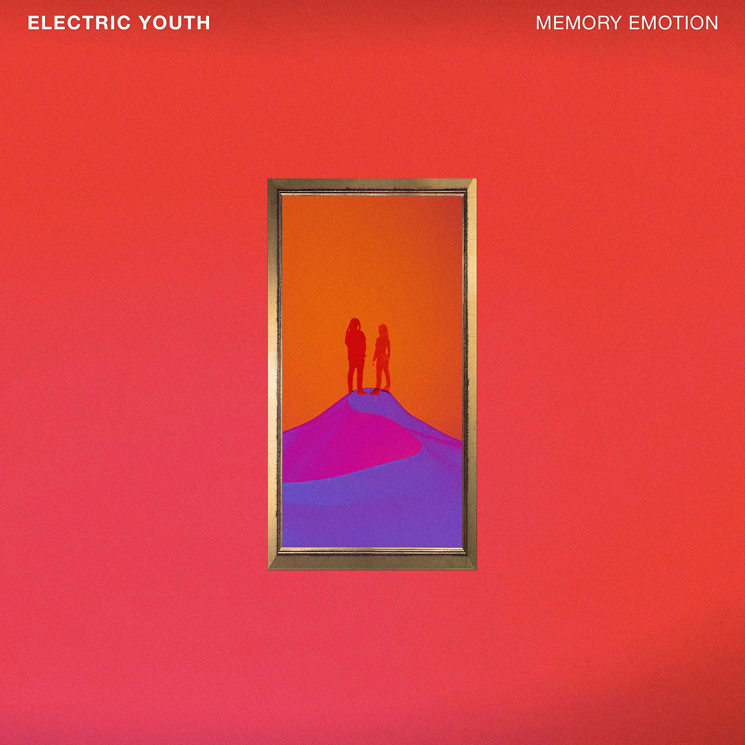It is possible to relive the exact moment that came to define Electric Youth's career. Fire up the 2011 film Drive, and skip to the scene in which Ryan Gosling and Carey Mulligan's characters spend a sunny afternoon in Los Angeles together. Playing over this scene is Electric Youth's tender synth-pop song "A Real Hero," the Gosling character's unofficial theme song.
Drive's success exposed the Toronto duo to an international audience, and they quickly amassed a following, releasing their debut album, Innerworld, in 2014. Five years later, Memory Emotion represents an artistic regression. It evokes the sound that helped launch Electric Youth's career, but the lyrics and vocal performances are not given as much care and attention.
Bronwyn Griffin's dulcet, wispy voice is treated as a passive element on several tracks, like "Real Ones," "Now Now" and "Breathless." Layers and layers of production — courtesy of the duo's instrumentalist Austin Garrick — aim to build that visceral synth-pop "vibe," but render Griffin barely audible. Memorable lyrics are not prioritized and emotional expressions become catatonic.
Memory Emotion's better moments harmonize production and vocals and tell lucid stories. "The Life" is the album's highlight; it disparages a greedy, self-involved individual, the instrumentation leading listeners down a nocturnal road with sharp drum beats and heavy, cascading synths. Griffin sounds alert and dynamic on the chorus, singing "No, no, no / I don't think he can hear you / Too busy living the life, the life, the life."
Synth-pop is susceptible to stagnation. Artistic experimentation — the kind that diversifies a genre — can rarely occur when a genre has tight parameters in which artists must work to ensure listener satisfaction. Memory Emotion demonstrates this dilemma. As a result, the album is best consumed as joyful background noise.
(Last Gang)Drive's success exposed the Toronto duo to an international audience, and they quickly amassed a following, releasing their debut album, Innerworld, in 2014. Five years later, Memory Emotion represents an artistic regression. It evokes the sound that helped launch Electric Youth's career, but the lyrics and vocal performances are not given as much care and attention.
Bronwyn Griffin's dulcet, wispy voice is treated as a passive element on several tracks, like "Real Ones," "Now Now" and "Breathless." Layers and layers of production — courtesy of the duo's instrumentalist Austin Garrick — aim to build that visceral synth-pop "vibe," but render Griffin barely audible. Memorable lyrics are not prioritized and emotional expressions become catatonic.
Memory Emotion's better moments harmonize production and vocals and tell lucid stories. "The Life" is the album's highlight; it disparages a greedy, self-involved individual, the instrumentation leading listeners down a nocturnal road with sharp drum beats and heavy, cascading synths. Griffin sounds alert and dynamic on the chorus, singing "No, no, no / I don't think he can hear you / Too busy living the life, the life, the life."
Synth-pop is susceptible to stagnation. Artistic experimentation — the kind that diversifies a genre — can rarely occur when a genre has tight parameters in which artists must work to ensure listener satisfaction. Memory Emotion demonstrates this dilemma. As a result, the album is best consumed as joyful background noise.
